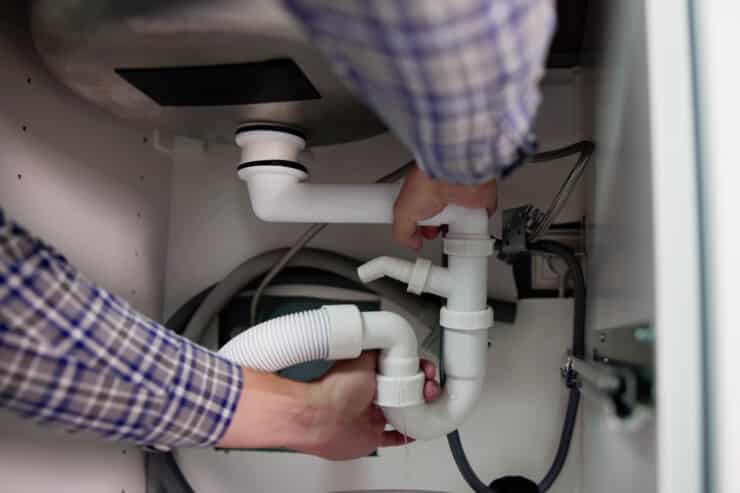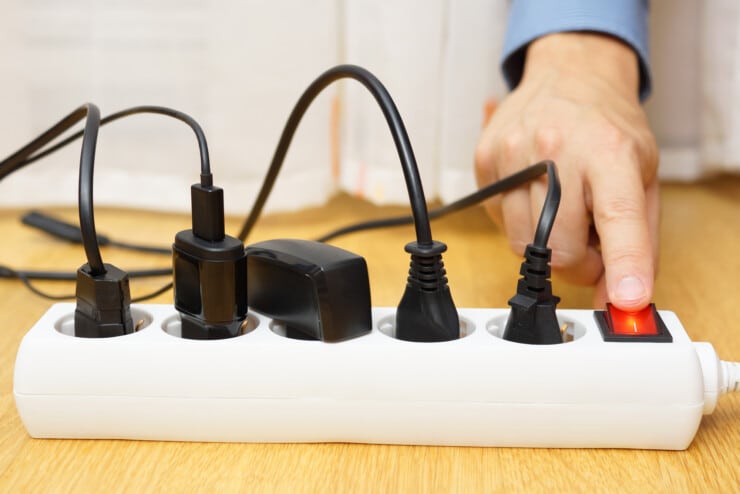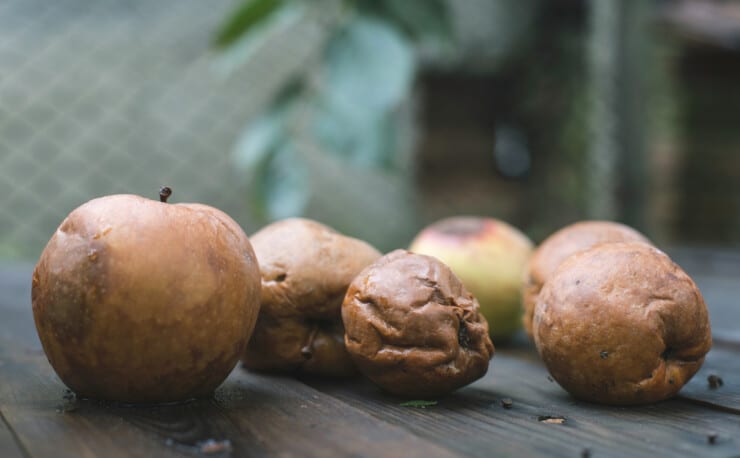Why is There a Strange Rubber Cement Smell in My House?
You have been racking your brain attempting to identify the source of that peculiar smell that is present in your household.
It’s as if a mischievous rubber cement fairy has taken up residence, leaving its distinct aroma behind like an invisible calling card.
You’re not alone; many homeowners have encountered this perplexing odor and wondered where it comes from and how to get rid of it.
In our quest for mastery over our living spaces, we’ll dive into the possible causes behind this strange rubber cement smell so you can finally lay the olfactory mystery to rest.
Understanding what may be causing these odors is essential for maintaining a comfortable and healthy environment in your home.
So let’s embark on this aromatic adventure together and figure out which sneaky culprits might be responsible for that peculiar scent!
Investigating Potential Sources Of Odor

With so many potential sources of odors in our homes, from cooking smells to cleaning products, it can be challenging to pinpoint exactly where that strange rubber cement smell is coming from.
However, paying attention to the subtle nuances of various household odors can help you identify the source quickly and efficiently.
Now let’s turn our focus toward some unusual culprits that could be responsible for that pesky rubber cement smell invading your living space.
While it might not be obvious at first glance, everyday items like electronics or even certain types of flooring materials can emit these distinctive scents under specific conditions.
For instance, overheating electronics may give off an odor similar to rubber cement due to their plastic components melting or becoming unstable.
Similarly, adhesives used in the installation of carpets or vinyl flooring may produce this distinct aroma as they age or when exposed to heat and humidity.
As we’ve explored a few possible reasons behind that mysterious rubber cement smell in your home, remember always to stay vigilant and curious about what might be causing such intriguing olfactory experiences.
Keep track of any patterns related to when and where you notice the aroma most intensely – doing so will further aid in narrowing down its elusive source.
And who knows?
You just might uncover something unexpected while on this journey towards mastery over your sensory surroundings.
Assessing Your Plumbing System

I’d start by inspecting the pipes for any signs of corrosion or damage.
Next, I’d look for any potential leaks. If there’s any standing water, that’s a sign of a leak.
Then, I’d check the drains to see if they’re clogged or slow to drain. If they’re clogged, I’d use a plunger or drain snake to unclog them.
Lastly, I’d look for any unusual smells, especially rubber cement, which could be a sign of a leak or a clogged drain.
Inspecting Pipes
You know that feeling when something just doesn’t seem right?
You’re walking through your house and suddenly you catch a whiff of an odd rubber cement smell, but can’t quite pinpoint where it’s coming from.
It could be possible that the strange odor is due to issues with your plumbing system, particularly the pipes.
Inspecting these hidden components might help you locate the source of the stench.
Pipe maintenance plays a significant role in ensuring that our homes remain safe, comfortable, and free of foul smells.
As we strive for mastery in maintaining our living spaces, understanding how to assess our plumbing systems becomes crucially important.
Begin by identifying any visible signs of wear or damage on exposed pipes – such as rust spots, leaks, or discolored areas.
Keep an ear out for any unusual sounds like gurgling or hissing which may indicate air trapped within the pipes or other underlying issues.
Investing time and effort into proper pipe maintenance not only helps with odor prevention but also prolongs the lifespan of your plumbing system.
When was the last time you had your home’s plumbing professionally inspected?
Engaging experienced professionals who specialize in assessing plumbing systems ensures that potential problems are identified early before they escalate into costly repairs.
Remember: addressing minor issues proactively saves both time and money in the long run while keeping those unexpected odors at bay!
So don’t wait until things start smelling funky again – take charge today and give your pipes some much-needed attention!
Detecting Leaks
So, you’ve started paying closer attention to your plumbing system and its maintenance – great job!
Now let’s talk about something that goes hand-in-hand with pipe upkeep: leak detection.
Detecting leaks early on can save you a ton of headaches down the line, as it helps in both odor prevention and reducing potential damage caused by water seepage.
Plus, being aware of possible odor health effects is important for keeping your home environment safe and comfortable.
When actively looking for leaks, keep an eye out for telltale signs like damp spots, mold growth, or discoloration on walls and ceilings.
Also, don’t forget to monitor your water bill; if it suddenly spikes without any significant changes in usage habits, there could be a hidden leak lurking somewhere within your plumbing system.
You might even consider investing in some handy gadgets designed specifically for leak prevention – these devices are able to detect moisture levels around pipes and alert you when anything seems amiss.
Taking measures to detect leaks not only keeps those pesky odors at bay but also ensures a healthier living space for you and your family.
So why wait?
Start implementing these tips today and become a master of your own plumbing system!
Checking Drains
Now that you’re well-versed in leak detection, it’s time to delve into another crucial aspect of assessing your plumbing system: checking drains.
Proper drain maintenance is not only essential for odor prevention but also for ensuring the smooth functioning of your entire plumbing network.
After all, nobody wants to deal with unpleasant smells or persistent clogs disrupting their daily routines!
So how can you become a pro at maintaining your drains?
Start by regularly inspecting and cleaning them, making sure to remove any debris or buildup that could lead to blockages.
Don’t shy away from using eco-friendly cleaners and tools specially designed for this purpose – they’ll make the process even more efficient!
And remember to keep an eye on slow-draining sinks or showers as they might be signaling potential issues lurking beneath the surface.
By giving proper attention to drain maintenance and incorporating these practices into your home care routine, you’ll effectively combat pesky odors while mastering yet another facet of your plumbing system.
Keep up the good work, and watch those drains flow smoothly like never before!
Examining Building Materials And Products
Now that you’ve taken a closer look at your plumbing system, it’s time to shift gears and examine the building materials and products in your home.
These materials can sometimes be the source of unpleasant odors, like that mysterious rubber cement smell you’re trying to track down.
From paint to flooring, there are countless substances used in constructing and maintaining our homes – some of which may contain toxic chemicals or emit strong smells.
Building materials’ toxicity is an important factor to consider when investigating strange odors in your house.
Some chemical compounds found in paints, adhesives, insulation, and other materials can release volatile organic compounds (VOCs) into the air.
These VOCs might be responsible for that peculiar rubber cement smell lingering around your home.
There’s no need to panic just yet; while some VOCs can have negative effects on health and indoor air quality, many common household items also release low levels of these compounds.
To pinpoint whether building materials are the culprit behind this odor, check for any recent renovations or repairs done inside your home, as well as examining storage areas where such products might be kept.
As you continue on this quest to banish unwanted smells from your abode, don’t forget about considering odorless alternatives for future projects or replacements.
Low-VOC options are available for various building products – including paints, sealants, and adhesives – making them safer choices not only for you but also for the environment too!
By opting for less-toxic materials whenever possible, you’ll contribute towards better overall indoor air quality within your living space while simultaneously eliminating potential sources of pesky odors once and for all.
Identifying Electrical Issues
You’re a step closer to mastering the art of electrical fire prevention and ensuring safety in your home!
Identifying potential electrical issues that could be causing the rubber cement smell is crucial.
It’s possible that an electrical problem, such as faulty wiring or overloaded circuits, may be responsible for the strange odor you’ve detected.
Keep in mind that wiring maintenance should never be taken lightly – it’s essential if you want to keep those mysterious smells at bay.
To begin with, start by inspecting all power outlets and cords around your house.
Are any visibly damaged or emitting unusual odors?
If so, unplug anything connected to these sources immediately and consult with a professional electrician before using them again.
Secondly, check your circuit breaker panel for any signs of wear or damage.
A burning smell coming from this area might indicate overheating components which require prompt attention from experts in the field of electrical fire prevention.
Now that you have equipped yourself with knowledge on identifying possible culprits behind the peculiar rubber cement smell, remember always to prioritize your family’s safety above everything else.
Regularly monitor your home’s electrical system and maintain its integrity through routine checks and repairs when necessary—this will ensure not only peace of mind but also help avoid dangerous situations caused by unnoticed problems down the road.
Implementing Effective Solutions For Odor Removal

Now that we’ve identified the possible electrical issues causing that strange rubber cement smell in your house, let’s move on to implementing effective solutions for odor removal.
You might be thinking, ‘But I don’t have any electrical problems!’
Even if you haven’t found a specific issue yet, these tips will still help with general odor prevention and air purification.
The first step towards effective odor removal is ensuring proper ventilation throughout your home.
This means opening windows regularly or using exhaust fans in areas where odors tend to linger, such as the kitchen or bathroom.
Proper air circulation helps dissipate lingering smells and introduces fresh air into the living spaces.
It also aids in preventing mold growth, which can contribute to unpleasant odors over time.
For more targeted odor elimination and prevention strategies, consider investing in an air purifier specifically designed to tackle stubborn smells like those caused by volatile organic compounds (VOCs), which are often present in paint fumes, cleaning supplies, or even new furniture pieces.
Many of these devices use activated carbon filters that effectively trap and neutralize VOCs before they can disperse into your indoor environment.
Additionally, maintaining a clean home through regular vacuuming and dusting significantly reduces the presence of airborne particles that could potentially exacerbate unwanted scents.
By combining these methods alongside good hygiene practices, you’ll soon find yourself surrounded by fresher-smelling surroundings – free from any trace of that once mysterious rubber cement scent!
Frequently Asked Questions
Can certain types of indoor plants contribute to a rubber cement smell in my house?
Surprisingly, certain types of indoor plants can indeed contribute to a rubber cement smell in your home.
Proper plant maintenance and odor elimination techniques are essential for ensuring a fresh and pleasant living environment.
Some plants, such as the Ficus elastica or ‘Rubber Plant,’ emit volatile organic compounds (VOCs) that may resemble a distinct rubbery scent.
To combat this issue, it’s crucial to maintain proper air circulation around your plants by opening windows or using an air purifier.
Incorporating other houseplants known for their air-purifying properties can help alleviate unwanted odors while enhancing your space with lush greenery – allowing you to master the art of creating a refreshing atmosphere within your home.
How might recent weather changes affect the presence of a rubber cement smell in my home?
Recent weather changes can significantly impact the presence of unusual odors in your home, such as a rubber cement smell.
Fluctuations in temperature and humidity levels can cause materials within your house to expand or contract, releasing trapped chemicals or particles that contribute to these mysterious scents.
Weather-related odors might seep into your living space from outside sources during periods of high humidity or heavy rainfall.
By understanding how humidity effects and other atmospheric conditions influence indoor air quality, you’ll be better equipped to pinpoint potential causes for that strange rubber cement smell and take appropriate action to maintain a fresh, comfortable environment at home.
Are there any potential health risks associated with breathing in a rubber cement odor for an extended period of time?
Imagine breathing in a whiff of that distinct rubber cement aroma, and your senses are instantly transported back to childhood art projects.
While the nostalgic scent may bring about fond memories, it’s important to consider the potential health implications of inhaling such an odor for extended periods of time.
Prolonged exposure to volatile organic compounds (VOCs) commonly found in rubber cement can lead to headaches, dizziness, nausea, and even damage to the liver or central nervous system.
To ensure you maintain a healthy environment within your home, it’s crucial to identify and address the source of this peculiar smell through proper ventilation and odor elimination techniques.
Can the rubber cement smell be caused by a specific type of household cleaning product or air freshener?
It’s possible that the rubber cement smell in your home could be a result of cleaning mishaps or certain air freshener alternatives.
Sometimes, mixing different household cleaning products can produce unexpected and unpleasant odors.
Some natural or DIY air fresheners may contain ingredients that emit a scent similar to rubber cement when combined with other household smells.
To conquer this odor mystery and achieve mastery over your home environment, consider revisiting the cleaning products you’ve recently used and experiment with alternative air freshening solutions until you find one that eliminates the offending smell without introducing any undesirable side effects.
Is it possible for the rubber cement smell to be a result of a neighbor’s activities or products seeping into my home?
It’s entirely possible that your neighbor’s renovations or activities could be the source of that peculiar rubber cement smell wafting through your home.
Seeping chemicals from products they’re using, such as adhesives, solvents, or other construction materials, can easily infiltrate shared walls or vents and make their way into your living space.
If you’ve recently noticed some remodeling going on next door, it might be worth having a friendly chat with them to gain insight into what they’re working with and if any precautions should be taken to minimize the impact on your indoor environment.
Final Thoughts
Don’t let the mysterious rubber cement aroma linger and hold your home hostage.
Keep an eye out for possible culprits such as indoor plants, cleaning products, or even pesky neighbors!
Remember that knowledge is power – arm yourself with information on potential health risks and be proactive in seeking solutions.
Breathe easy knowing you’ve left no stone unturned to banish this bizarre smell from your sanctuary. Your nose – and lungs – will thank you in the long run.







